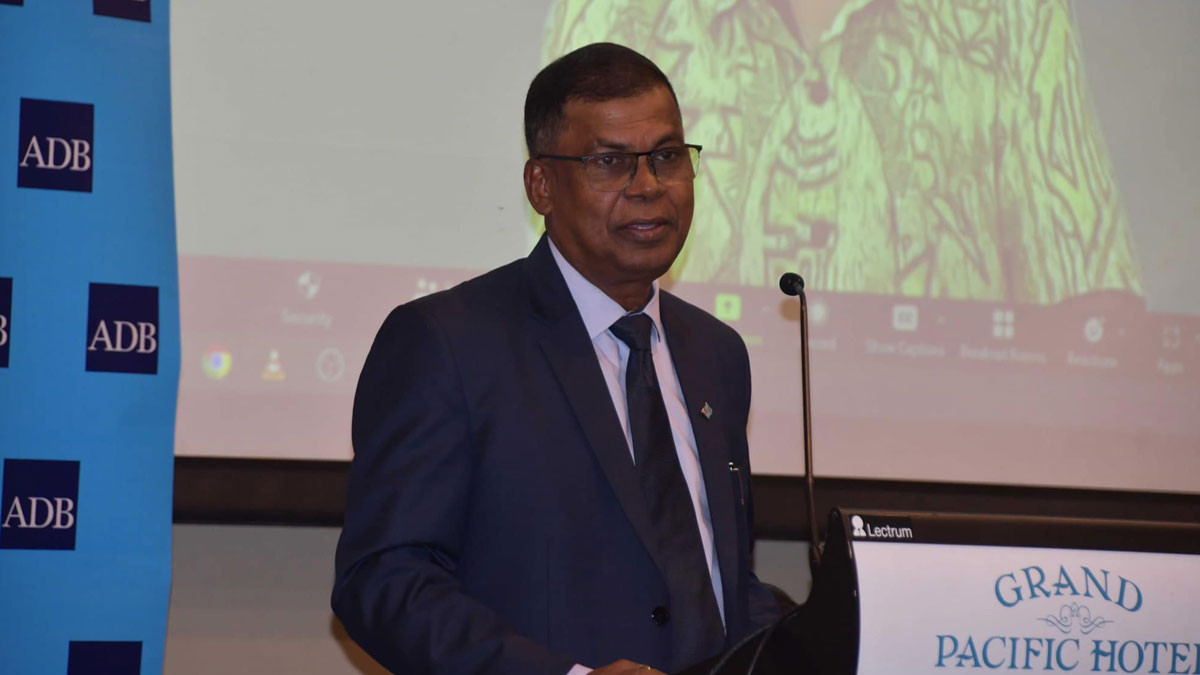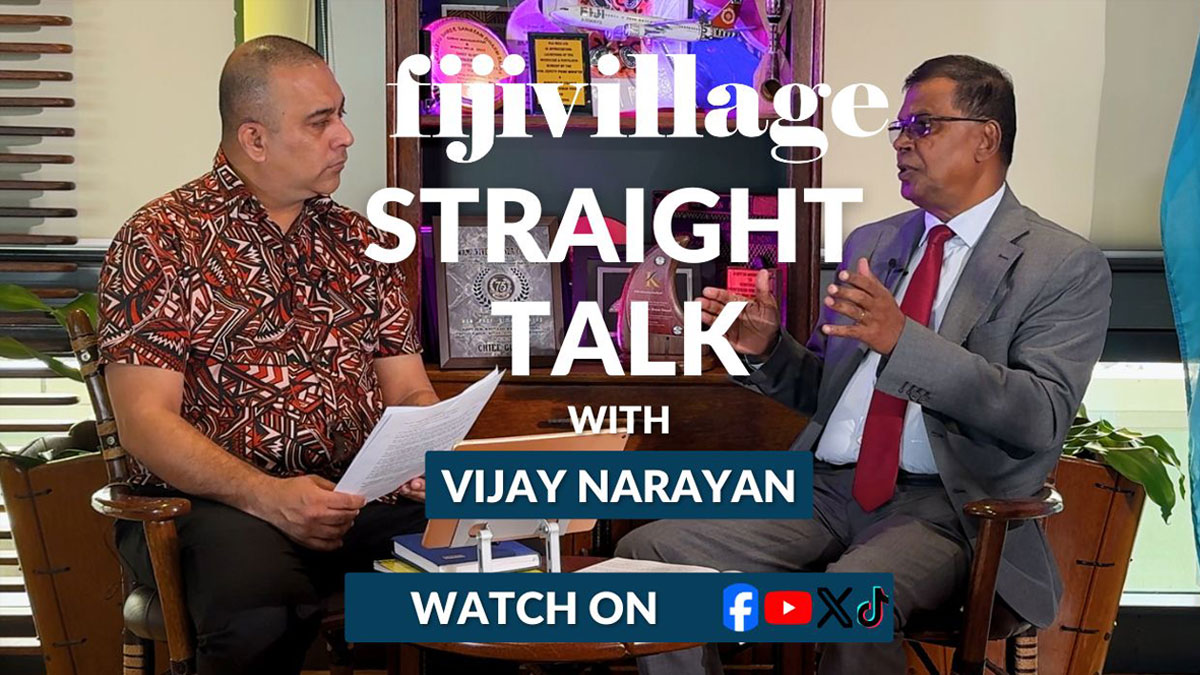
If the world continues to muddle through as it has done for decades, it will deny small island states the opportunity and openings that we so justly seek.
Those were the stern words of Deputy Prime Minister and Minister for Finance, Professor Biman Prasad as he spoke at the ADB-Asian Think Tank Development Forum Pacific Island Economies: “Aiming for Sustainable Economic Development in the Midst of Growing Uncertainties” in Suva today.
Professor Prasad says we find ourselves at an inflection point, and he hopes the world will find the courage and political will to fundamentally reform the global financial architecture so that it is fit for purpose for these times.
He says we live in a difficult and uncertain global environment and the once in a 100 year pandemic-induced economic catastrophe has wiped off decades of our development progress.
Professor Prasad says we are now living in a world that is being changed by global warming, new pandemics could lie ahead, and it is more than likely that new pandemics could also be worse than the last.
He says small island states did not have the fiscal weapons that large states had to fund their social and health response and their recovery.
Professor Prasad says as a result, our debt situation which in many cases was already bad has worsened, and many countries have entered an uncharted debt trajectory with high levels of debt.
He says we will need global solidarity and a political will to take a fundamental new look at debt restructuring but at the same time, they are welcoming of new approaches for debt treatment, such as debt for nature swaps.
The Deputy Prime Minister says debt restructuring cannot be kicked into the long grass and ignored any longer, and that is why Fiji lends its full support to the Bridge Town initiative.
Professor Prasad says he looks forward to more discussions on this at the annual meetings of the IMF and World Bank.
He also says Fiji and the Pacific nations find themselves on the frontlines of this geopolitical contestation.
He adds this contestation will have long term adverse consequences for the region and there are no win-win options on the road ahead.
Professor Prasad says as a result of new conflicts such as Russia’s war on Ukraine, we are seeing increases in commodity prices and a rising cost of living.
He says the traditional levers available to policy makers no longer work in such a politically charged global context.
The Deputy Prime Minister says they have failed to see substantial actions being taken towards reducing greenhouse gases and decisively fighting the existential threat from climate change.
Professor Prasad says a temperature rise beyond 1.5 Celsius will have the deepest and gravest of impacts on the Pacific.
He says estimates suggest that even at 1.5 Celsius temperature rise, Pacific island economies stand to lose between 40 to 80 percent of their land based economies.
Professor Prasad says they are also disappointed that the UN General Assembly failed to make progress on a loss and damage facility.
He says if the Pacific Island states did not have to borrow to recover from climate catastrophes, they could at least stand still but the brutal truth is that whether it is Tonga or Vanuatu or any other Pacific nation, each climate catastrophe leads to increased debt.
The Deputy Prime Minister says they are now making the argument internationally that all climate finance windows must have a dedicated small island states window – from the Green Climate Fund to across climate windows within the ADB and the World Bank.
They are seeking support for new approaches to funding recovery – by prepositioning low-cost finance needed for recovery; by expanding parametric insurance coverage.
Professor Prasad has also made it clear that we in Fiji find the ADB and the World Bank to be a fundamental part of our development story but in the medium term, the current arrangements for development financing to Fiji and the island states of the Pacific cannot continue in this form.
He says a transformational – not incremental reform is needed – transformational in scope; transformational in ambition; and transformational in development impact.
Professor Prasad says challenges emanating from our geographical location, distance to and from major markets, small population sizes, lack of access to technology, cost of finance, and cost competitiveness impose huge constraints on our development aspirations.
He gave two examples to illustrate this - If Indonesia were to borrow to build and upgrade 50 kilometers of its roads; it may cost Indonesia, let’s say $100 million. Indonesia does not need to import most of the raw materials; it has a competitive road construction sector and it has capacity.
He says if Solomon Islands were to build the same length of road, it may cost them in excess of $300 million because of all the challenges he has stated.
He adds machinery will need to be imported; steel and other inputs will need to be imported with crippling shipping costs; contractors will need to be imported; critical technical capacity will also need to be imported.
Professor Prasad says to achieve exactly the same outcome as Indonesia, the Solomon Islands will need to borrow or spend 2-3 times more from its domestic resources. Yet Indonesia and Solomon Islands will borrow at almost the same cost.
He says this is the start of a food chain of unfairness and this chain of unfairness is written across the international development system.
Stay tuned for the latest news on our radio stations

